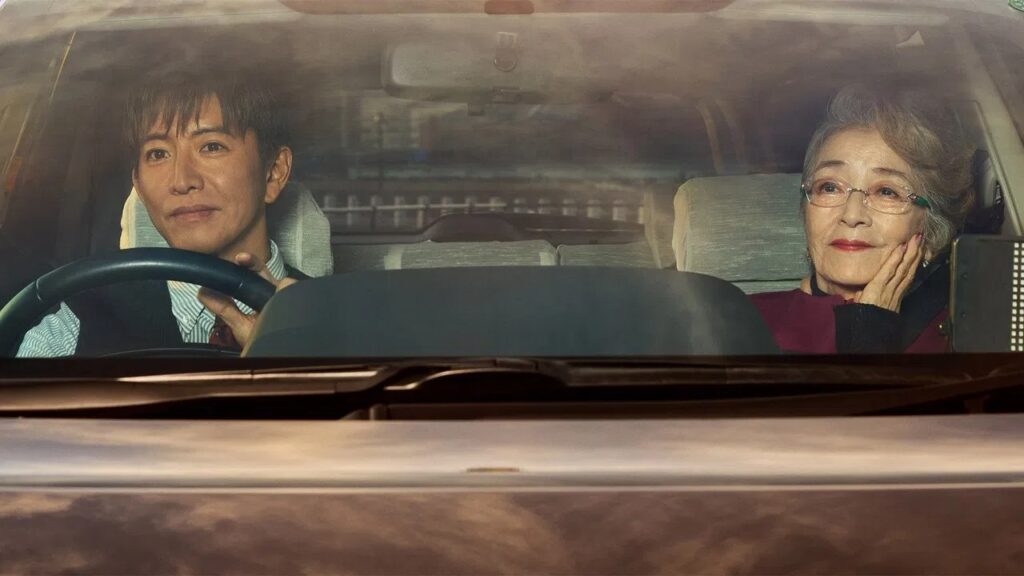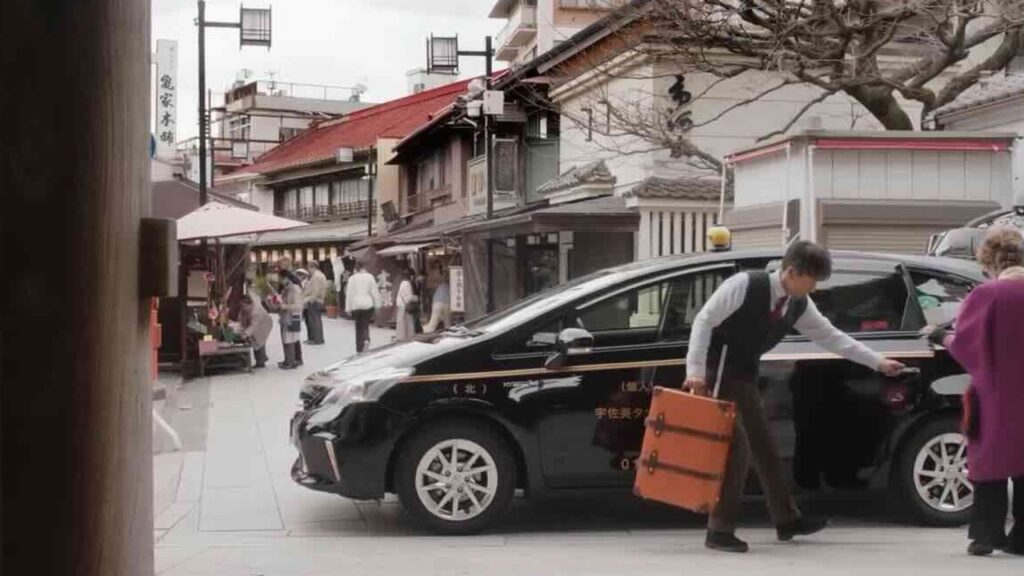It is honestly commendable that even at the age of ninety-four, the globally renowned Japanese filmmaker Yoji Yamada adds another title to his extraordinary filmography with ‘Tokyo Taxi,’ which is, by the way, his ninety-first feature. We see Chieko Baisho, who has appeared in approximately 160 films, and in this quiet drama by Yamada, he reunites two veterans who have collaborated for decades, most notably on the Tora-san comedies that ran from the year 1969 to 1995. For those who don’t know, Yamada even holds a Guinness World Record for directing the world’s longest-running film series featuring the same star, named Kiyoshi Atsumi.
This latest collaboration premiered as a centerpiece selection at the Tokyo International Film Festival, where fans rejoiced as Yamada also received a lifetime achievement award. We see how the film unfolds as a sentimental road movie about an aging cab driver who takes an elderly woman on one final ride through Tokyo, a journey filled with memories, regrets, and understated revelations. Even though the movie is heartfelt for us, the result somehow leans into the overly sentimental, where finding real power only happens when you accept the darker truths.
Balancing Sentiment and Surprise in Classic Storytelling

The movie Tokyo Taxi is apparently a faithful remake of the 2022 French film Driving Madeleine (Une belle course), which also follows a similar structure but with a heavier emotional tone. From the very start, we notice and guess where the story will lead, although a midway twist brings a welcome jolt of surprises that even the hardcore fans of Yamada could not guess out loud.
We notice that the film begins with Koji (Takuya Kimura), who is a weary taxi driver struggling to support his family and pay for his daughter’s music school. When he accepts an unusual fare to drive Sumire (Baisho), who is an 85-year-old woman moving to a seaside retirement home in Yokohama, the simple trip turns into a day-long odyssey across the city of Tokyo. As they travel through all the landmarks, Sumire tells him that she wants to revisit places that shaped her life, causing memories and old secrets to resurface.
These losses start a life of endurance, and through old memories, we witness how Yamada shows her life as a mix of truth and reflection. The most affecting sections were how we, as viewers, get to explore her second marriage to an abusive, controlling man who left her with no freedom or dignity. Her eventual act of defiance and the consequences that follow give Tokyo Taxi its most humane moments. In these scenes, we honestly get to understand how a film has its own flow of sentimentality, as well as to comment on the limited agency available to women in postwar Japan.
From Personal Pain to Universal Insight of Tokyo Taxi’s Drama

Once all of those revelations pass, the film settles back into its soft predictability that gives us the sense that not everything needs to be as complicated as most of us believe it should be. Baisho and Kimura share genuine chemistry, though his character could use more tension or roughness, but it’s good that it didn’t. In comparison, the French version benefited from the natural edge of a Parisian driver, while Koji’s easygoing warmth sometimes flattens the drama. The final scenes are gentle and moving, yet so foreseeable that the emotional payoff feels muted.
But also at times, Tokyo Taxi recalls Wim Wenders’ 2023 film Perfect Days, which is yet another quiet reflection on Tokyo and the beauty of aging. Where Wenders found strength in restraint, Yamada leans toward overt emotion, often punctuated by swelling music and old memory cues. The contrast reveals both the tenderness and the indulgence of Yamada’s approach.
Although Tokyo Taxi may not reach the heights of Yamada’s acclaimed works as of now, such as The Twilight Samurai or The Hidden Blade, with time, it will age perfectly and remain an earnest reflection on aging, memory, and the stories we choose to share. It invites viewers to take one last trip through the past, guided by a filmmaker who has spent a lifetime observing ordinary lives with compassion and grace.




